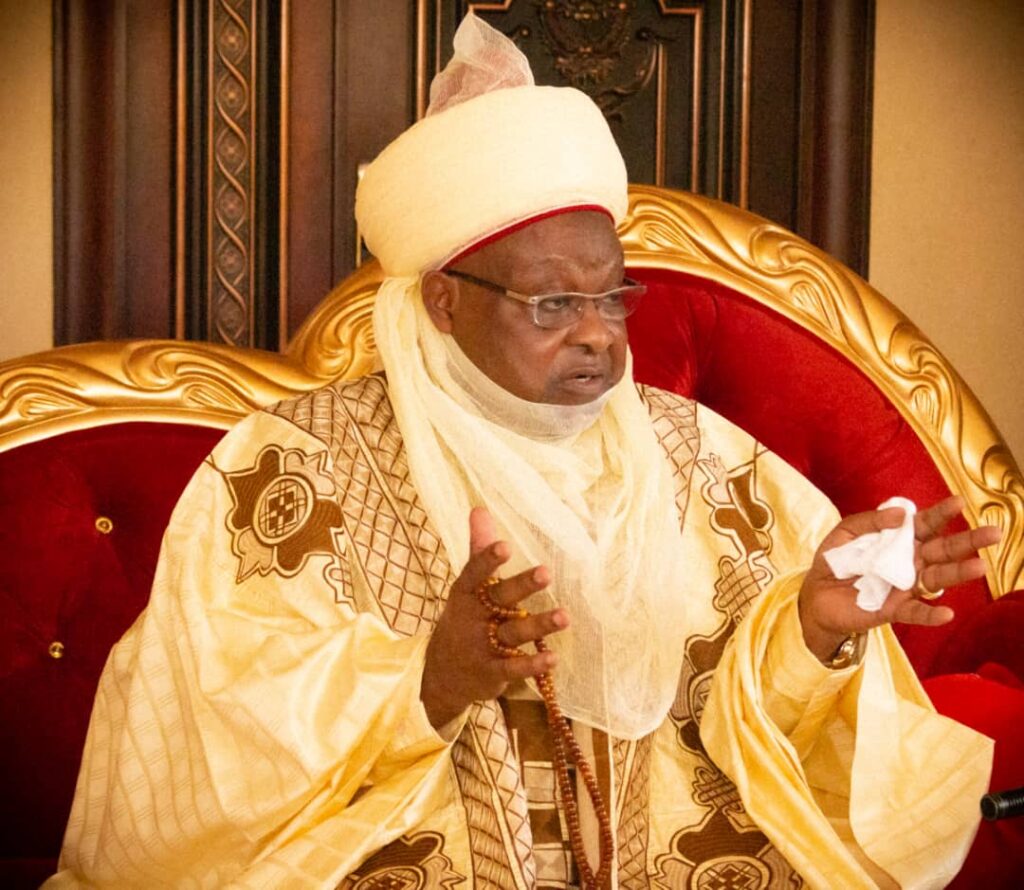In a video that has gone viral, the Emir of Katsina, Alhaji Abdulmumin Kabir Usman, addressed the delegation of a politician, Honourable Sada Soli Jibia, in an unusual language, deviating from his normal jovial, smiling and friendly disposition.
He talked tough and was unsparing. No wonder the video was full of “Gyara dai! Numfasawa!” An indigene of the emirate, Sada is in the race for Speaker, House of Representatives, and he sent a delegation to the emir for his support.
Without mincing words, Sada is wrong. But I believe it is an honest mistake which as humans we make daily and ask Allah for forgiveness. He was not trying to spite the emir because he needs the emir more than the emir needs him. Also, because the delegation was in the palace for a favour.
The emir also did not address the delegation the way he did to embarrass them or their candidate. We all respect him as a good and caring father. I want to believe that he only used the opportunity to correct some of the general shortcomings of people in our contemporary society. This is obvious because the emir said Sada did not know his relationship with his elder brother. I don’t know who the emir is referring to. But I want to believe that it is Alhaji Mamman Soli, who I have known for over 40 years as a reliable friend of my elder brother, Malam Abdulsalam Dan’Ali. Alhaji Mamman and Sada are products of a respected family and decent upbringing.
- Ogun student loses tuition fee to gambling, commits suicide
- FEC okays $61.5m, N16.733bn for power projects
The words of wisdom of the emir should be considered a wake-up call to all politicians and the general public.
The message for politicians is that they must value and respect people because politics is about people and it revolves around them.
Chief MKO Abiola and Asiwaju Bola Ahmed Tinubu won presidential elections in Nigeria not because their shortcomings are not known to Nigerians but because they were reaching out to all Nigerians and building bridges with their resources and time for over 20 years.
Their networks cut across ethnic, religious and regional groups. In fact, they even supported presidential candidates from other ethnic groups. For example, Abiola supported Alhaji Shehu Shagari, and Tinubu supported General Shehu Musa Yar’Adua, Malam Nuhu Ribadu, Alhaji Atiku Abubakar and President Muhammadu Buhari.
They identified themselves with the trials and triumphs of Nigerians without discrimination; visiting them and supporting their aspirations. This is why by the time they came out as presidential candidates no Nigerian was asking: Which Abiola? Which Tinubu? In the case of Abiola, he was unstoppable in Kano, the home state of his only opponent.
There are some lessons in this for Peter Obi. The emir once said that he knew Tinubu as an associate of his father, the late Emir of Katsina of blessed memory, Alhaji Kabir Usman, who died over 10 years ago. Therefore, it is understandable if the emir welcomes Tinubu to his palace.
Politicians who are remembered today as statesmen, like Chief Obafemi Awolowo, Dr Nnamdi Azikiwe, Alhaji Aminu Kano and Sir Ahmadu Bello Sardauna, were servant leaders who lived in the midst of their people, always doing the needful; sympathising with them, celebrating their blessings and triumphs, and supporting them in many ways.
Good evening politics does not last long. Call it the speed of Andrew’s salt, if you like.
Isiyaku Dikko wrote from Abuja

 Join Daily Trust WhatsApp Community For Quick Access To News and Happenings Around You.
Join Daily Trust WhatsApp Community For Quick Access To News and Happenings Around You.


